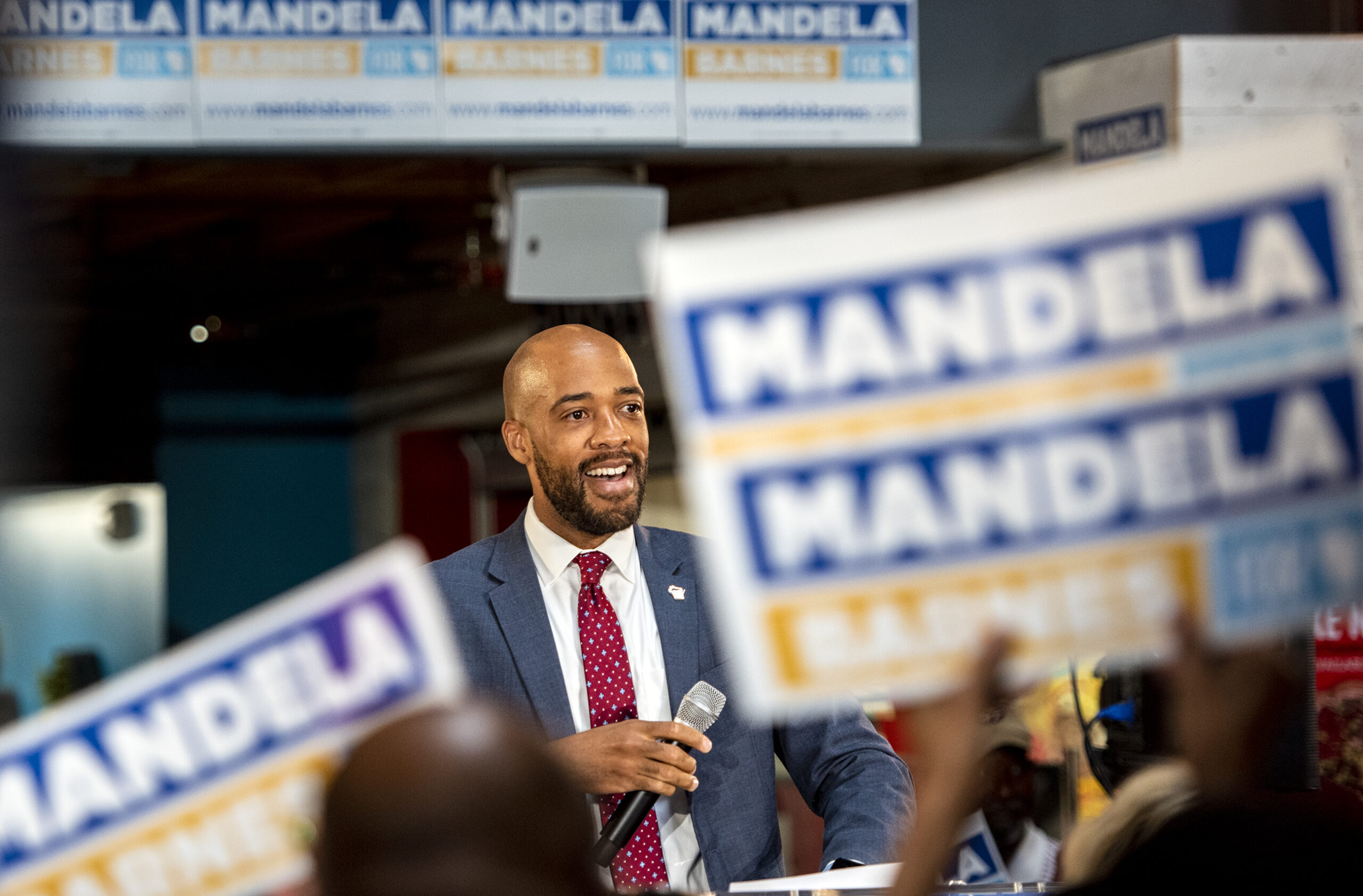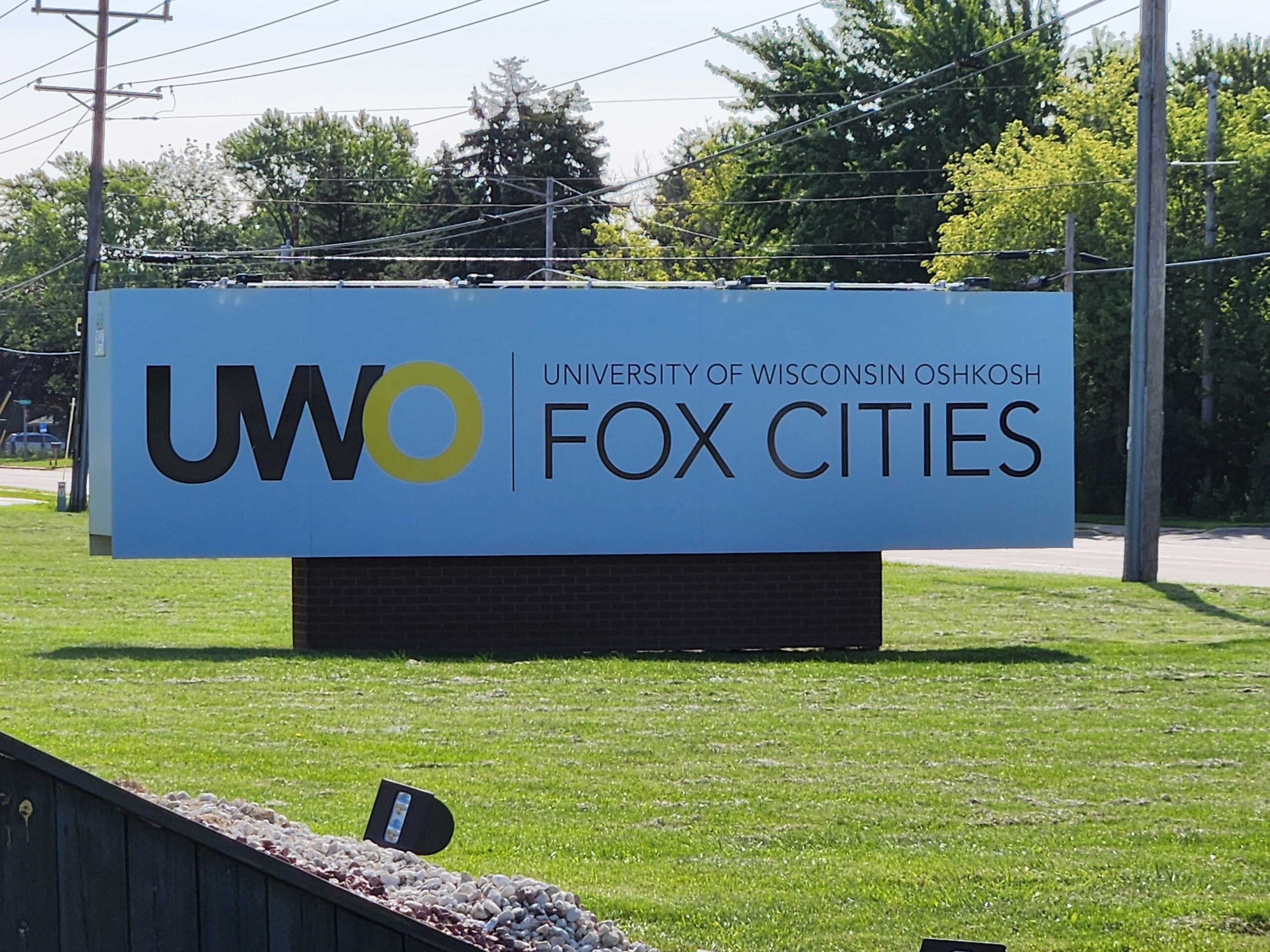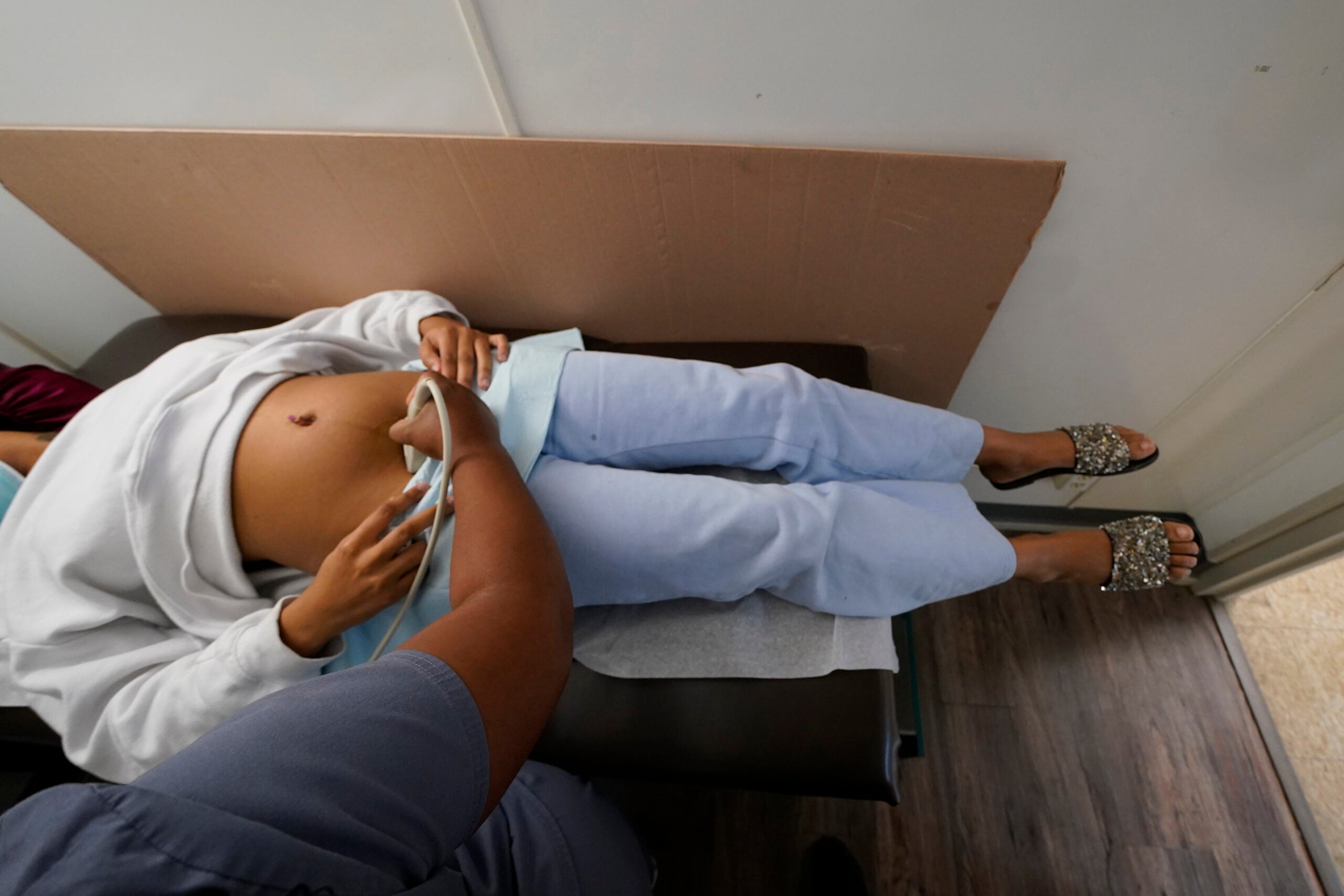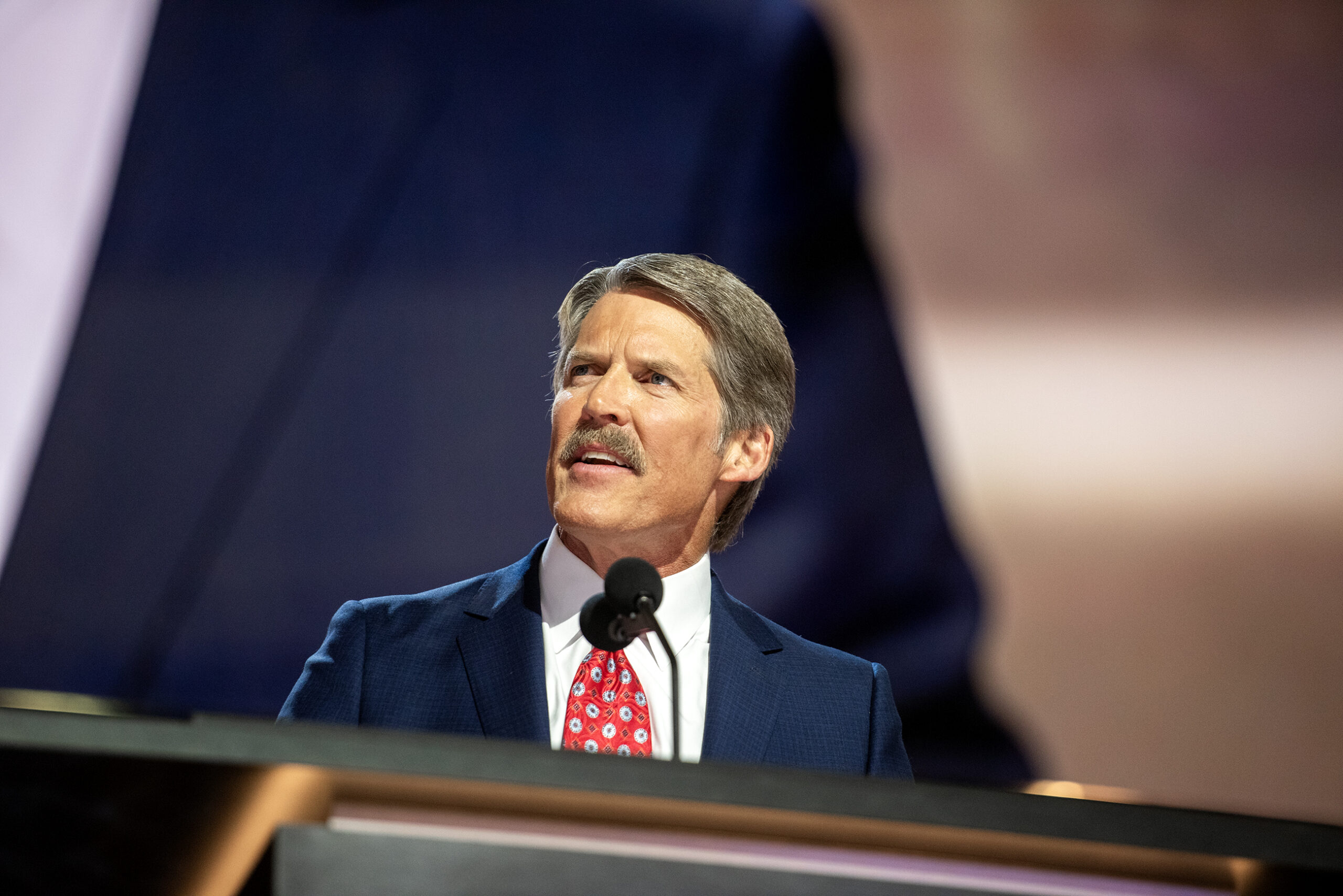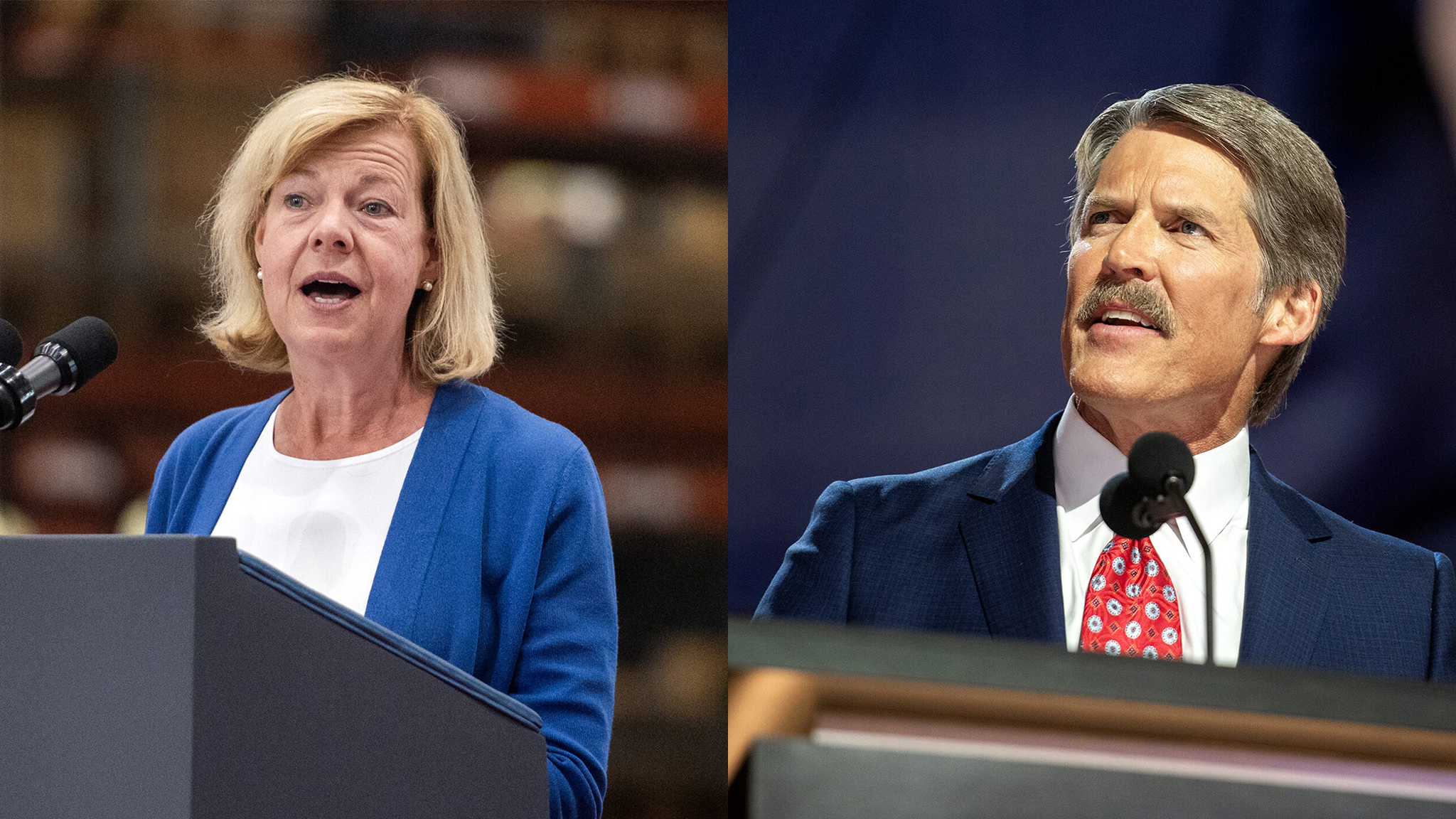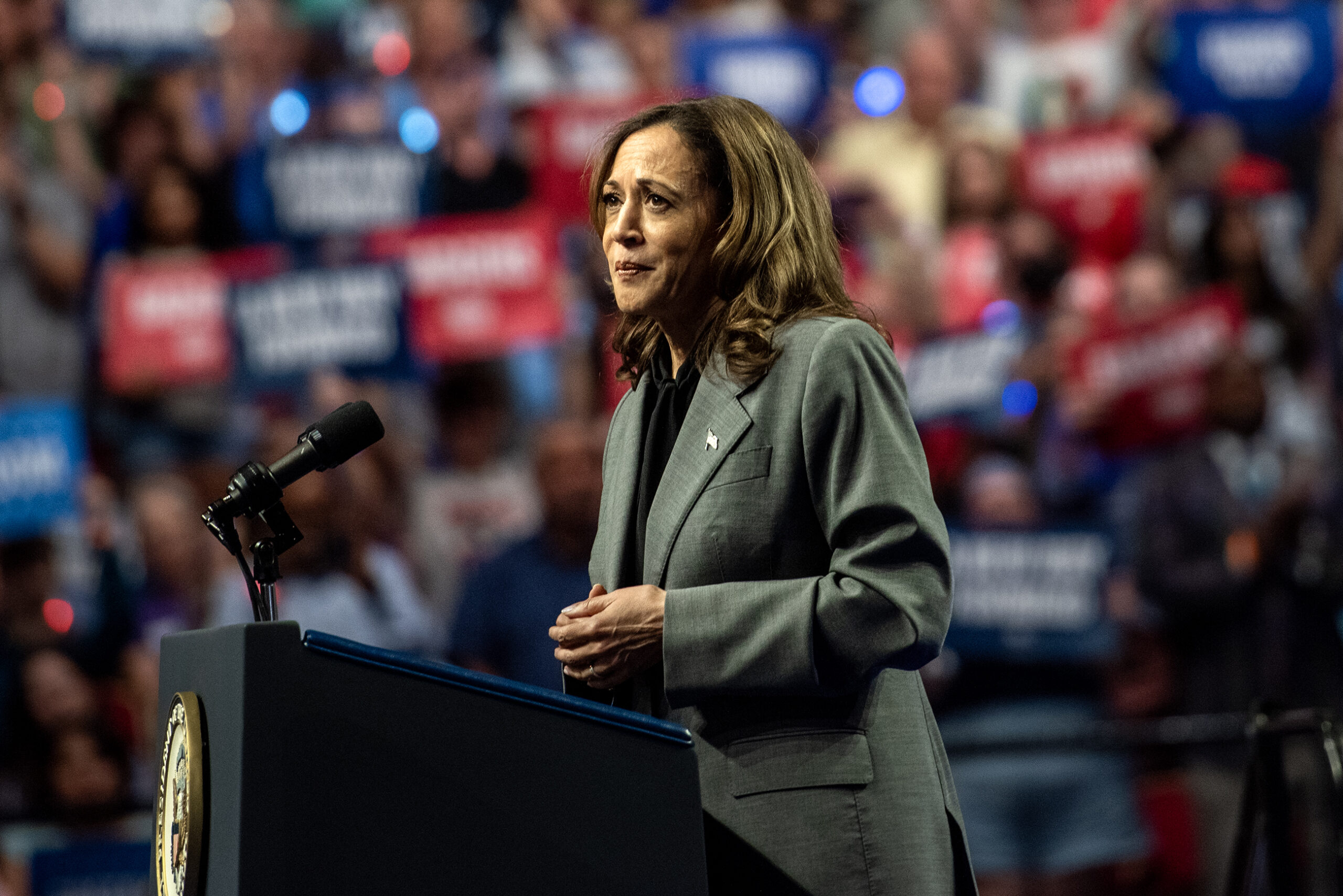Frontrunning candidates in the Democratic Senate primary made their cases against Republican U.S. Sen. Ron Johnson on voting rights and other topics in a virtual forum Thursday.
The Jewish Democratic Council of America hosted the forum. Lt. Gov. Mandela Barnes, Milwaukee Bucks executive Alex Lasry, Wisconsin State Treasurer Sarah Godlewski and Outagamie County Executive Tom Nelson all took part, as the leading candidates in the August primary. They’re all hoping to unseat Johnson, R-Oshkosh, in November.
With a rule in place preventing candidates from engaging with, addressing or referring to one another, the candidates largely focused their attacks on Johnson.
Stay informed on the latest news
Sign up for WPR’s email newsletter.
“While Ron Johnson wants to divide us, the thing he doesn’t understand is we all have so much more in common with each other than any of us do with a self-serving, out-of-touch multimillionaire like him,” Barnes said.
All four candidates advocated for abolishing the filibuster, the 60-vote threshold for most legislation in the Senate. The candidates discussed it in the context of expanding voting rights, as voting rights legislation that has passed the U.S. House has faced uphill battles in the face of the filibuster.
“It is a dated, racist rule that should have been gone a long time ago,” Nelson said. “It’s just a question of, do Democrats get rid of it and do good things, or Republicans get rid of it and do some awfully bad things once you get rid of the filibuster?”
Godlewski said eliminating the filibuster was the first step to expanding voting rights.
“If we don’t have democracy, we don’t have anything,” Godlewski said. “We can talk about health care, we can talk about the environment, but that to me is the fundamental issue that we are all fighting for.”
Lasry called voting rights “one of the defining issues of our generation.” Barnes, meanwhile, said the issue has continued to become more urgent. He called for the expansion of mail voting and same-day voter registration.
“Our democracy is still on the line,” Barnes said. “We have to protect the right to vote with everything we have.”
Candidates address rising antisemitism
Candidates in the forum were asked how they would work to combat right-wing extremism, white supremacy and antisemitism. An audit from the Anti-Defamation League earlier this year found antisemitic incidents in the United States reached record levels in 2021.
Barnes said he supported passing legislation to prevent gun violence and domestic terrorism.
“We absolutely have to fight antisemitism with everything we have, we have to call it out when we see it forcefully, and we have to crack down on disinformation,” Barnes said.
Lasry brought up bipartisan legislation Gov. Tony Evers signed last year that requires schools to provide education on the Holocaust and other genocides.
“Education is going to be one of the most important things we can do to ensure that we don’t see what happened in the past,” Lasry said. “I think this is an incredibly serious and sensitive issue.”
Godlewski called the increase in violence and antisemitic actions “horrifying.”
“There is, let me be clear, no room for hate in this country,” Godlewski said. “We need to be able to fund these nonprofit organizations that are working diligently to develop leaders in our communities that are fighting this hate, and are working to kind of train the next generation.”
Nelson said antisemitism and other interrelated issues need to be identified quickly, emphasizing his support for enforcing hate crime laws.
“Antisemitism has been here for a long time,” Nelson said. “We have to recognize that this is not something that is unfortunately new, and that we can learn from history and know that it is absolutely urgent that we take action on it.”
Calls for expanding health care access
Democrats in Wisconsin have long argued for expanding Medicaid access, something the GOP-controlled Legislature has blocked. The Democratic candidates in Thursday’s forum focused on ways of making health care more affordable to Wisconsinites and all Americans. Johnson has repeatedly voted to repeal the Affordable Care Act created under former President Barack Obama. Johnson said earlier this year Republicans should be ready to repeal and replace it if they win the presidency and Congress in 2024.
Lasry said health care “should be a universal right for everyone.” He advocated for the availability of a “public option.”
“It’s not just a moral issue, it’s also an economic issue,” Lasry said. The lack of universal health care in the U.S., he said, “makes it really hard for us to spur innovation.”
Barnes said he supports Medicare for All, in addition to intermediate options such as lowering the eligibility age for Medicare.
“The health care system just isn’t working for working people,” Barnes said.
Nelson said Medicare for All would take care of many of the issues Americans face in the health care system.
“One half of county expenditures are focused on health and human services,” Nelson said. “If everyone had access to health coverage ahead of time, it would take a lot of pressure off of those services, and with … more and more cuts from the federal government and less support from the state, we are seeing that we need to conserve these resources.”
Godlewski said she supports expanding Medicare and Medicaid, in addition to offering paid family leave.
“I remember a time in my 20s where I used to say my car has better health insurance than I do, and I don’t want to go back to those days,” Godlewski said.
A Marquette poll released Wednesday found Barnes is leading the crowded Democratic field, as 25 percent of Democratic respondents said they’d vote for him in the Senate race. Lasry came in second with 21 percent, while 9 percent of those surveyed said they’d vote for Godlewski. Nelson placed fourth, with 7 percent saying they’d vote for him.
A significant chunk of voters remain undecided, however. The poll found 36 percent of respondents said they haven’t made a decision.
Wisconsin Public Radio, © Copyright 2025, Board of Regents of the University of Wisconsin System and Wisconsin Educational Communications Board.
